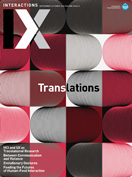Authors:
Tom Blount, Dan Barnard, Laura Koesten, Elena Simperl
Smoking Gun is a collaborative mobile experience designed to explore human-data interaction with different types of data. The art piece unfolds as a thriller, placing you at the heart of a potential whistle-blower scandal, taking a playful approach to explore the power of data in the age of disinformation. You must solve puzzles; scrutinize documents, images, and video; wrangle datasets; and chat about the evidence with fellow players to uncover what is really going on at the heart of government. But as your investigations take you deeper, it's hard to know who and what to trust.
Smoking Gun was the result of a collaboration between FastFamiliar (https://fastfamiliar.com/) and the Data Stories project (http://datastories.co.uk/), supported by the STARTS Residency program (https://vertigo.starts.eu/). The goals of this collaboration were to explore how to use narrative and game mechanics to change the way the public engages with data. Can it encourage people to engage with types of data with which they might not otherwise engage? Can it encourage them to engage more thoroughly and rigorously than they would have otherwise?
We created a digital artwork that is available to the public (experienced via smartphones or tablets) as a new type of interactive performance taking place over several days and involving a non-collocated audience. Through this process, we created a platform that could be used to create other artworks or training tools that take a similar form, or as a platform for research into collaborative data engagement.
Through the collaboration, we also arrived at some key lessons that we believe generalize to many arts/science collaborations:
- Respect each other's expertise and roles through clearly defining responsibilities at the start of a collaboration and understanding—and respecting—one another's objectives for the project. Putting the focus on bidirectional knowledge transfer avoids valuing one type of knowledge over another.
- Encourage translation processes through being mindful of language and communication practices. Inclusiveness and transparency of decision making can allow different actors to access different types of knowledge.
- Empower each other to ask about what we don't understand. Often we can either feel embarrassed at not understanding something ourselves or we can fail to explain things fully for fear of patronizing someone else. Removing this barrier can make everyone feel comfortable about being able to ask questions.
- Interdisciplinary partnerships provide a fresh perspective on developing artwork and help us recognize the limitations of our perspective, beyond disciplinary stereotypes and norms.
The Smoking Gun artwork provides a valuable framework for conducting larger-scale experimental research on human-data interaction and collaborative data communication. We intend to take this work forward and use it to understand how the audience experiences the art piece and the data they are presented, through a combination of log analysis and interviews. The bird's-eye view on the interactions of players can be used to deepen our understanding of collaborative interaction with data. We also hope to use the Smoking Gun platform to tell other stories driven by data and explore issues such as data privacy, bias in technocentric solutions, and the ever-present specter of "fake news."
Tom Blount is a research fellow at the University of Southampton, studying the conjunction of human-data interaction and game design. [email protected]
Dan Barnard is artistic director of Fast Familiar and a senior lecturer in drama and performance at London South Bank University, where he is part of the Digital Performance research group and the Centre for Research in Digital Storymaking. [email protected]
Laura Koesten is a research fellow at King's College London. She researches human-data interaction, aiming to understand data-centric work practices, data reuse, and collaboration among different user groups. [email protected]
Elena Simperl obtained her doctoral degree in computer science from the Free University of Berlin. She is a Fellow of the British Computer Society and a former Turing Fellow, and has held positions in Germany, Austria, and the University of Southampton prior to joining King's College London in 2020. [email protected]
Copyright held by authors
The Digital Library is published by the Association for Computing Machinery. Copyright © 2020 ACM, Inc.









Post Comment
No Comments Found